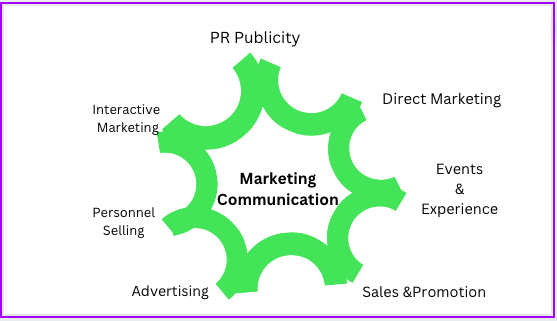In today’s fast-paced digital world, businesses are constantly competing for attention. While having a great product or service is vital, how you communicate with your audience can make or break your success. This is where Marketing Communications (MarCom) comes into play.
But what exactly is marketing communication, and why is it so critical?
What Is Marketing Communications?
Marketing communications refers to all the messages and media you use to interact with your market. It includes everything from traditional advertisements and social media posts to email campaigns, websites, public relations, and content marketing. The goal is simple: to inform, persuade, and remind potential customers about your offerings, and to build a strong, recognizable brand.
In short, marketing communication is how you speak to your audience.
The Key Elements of Marketing Communications
An effective marketing communication strategy blends multiple tools and channels to deliver a consistent and powerful message. Here are the main elements:
1. Advertising
Television, radio, print, and digital ads help spread the word quickly and reach a broad audience. Advertising builds brand awareness and can generate interest in a product or service.
2. Public Relations (PR)
PR helps shape your brand image and credibility by building strong relationships with media and the public. Press releases, media coverage, and event sponsorships are common PR tools.
3. Content Marketing
Blogs, videos, infographics, and podcasts provide value to customers while subtly promoting your brand. Content marketing builds trust and drives organic traffic.
4. Social Media Marketing
Platforms like Instagram, Facebook, Twitter, and LinkedIn offer real-time engagement with your audience. Social media helps humanize your brand and fosters community.
5. Direct Marketing
Email, SMS, and direct mail campaigns allow for personalized communication with customers. These are highly targeted and measurable.
6. Sales Promotions
Discounts, coupons, contests, and giveaways can encourage quick responses and increase short-term sales.
7. Personal Selling
This involves one-on-one interaction between a salesperson and a customer. It’s common in B2B marketing and high-value consumer products.

Why Marketing Communications Matter
A strong marketing communications strategy is not just about spreading information—it’s about creating meaningful connections with your target audience. Here’s why it’s essential:
- Builds brand recognition and loyalty
- Establishes trust and credibility
- Encourages customer engagement and feedback
- Drives conversions and sales
- Creates a consistent brand voice across channels
Integrated Marketing Communications (IMC)
In the modern marketing world, customers interact with brands across multiple platforms. To maintain clarity and consistency, businesses use Integrated Marketing Communications (IMC)—a strategy that unifies all communication channels into a seamless experience.
For example, a promotional offer on a company’s Instagram should match the message on their website and email campaigns. This unity enhances the customer journey and boosts brand recall.
Tips for Effective Marketing Communications
- Know Your Audience – Understand their needs, behavior, and preferences.
- Craft a Clear Message – Be concise, engaging, and focused.
- Choose the Right Channels – Use platforms where your audience is most active.
- Measure Results – Track performance using analytics to refine your strategy.
- Stay Consistent – Keep your tone, visuals, and messaging uniform across all platforms.
Conclusion
Marketing communications is more than just advertising—it’s a strategic tool that helps you build trust, generate interest, and drive action. In a world where consumers are bombarded with messages every second, having a clear, consistent, and compelling communication strategy can set your brand apart.
Whether you’re a startup or a global enterprise, mastering the art of marketing communications is essential for lasting success.